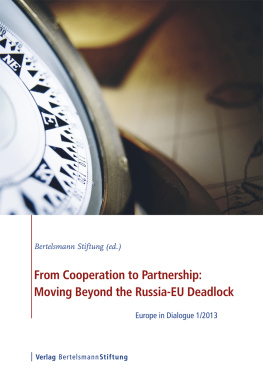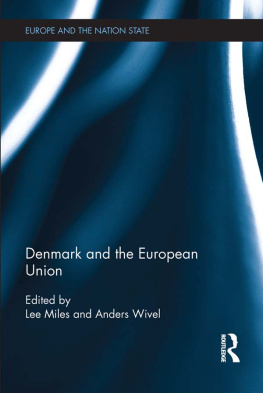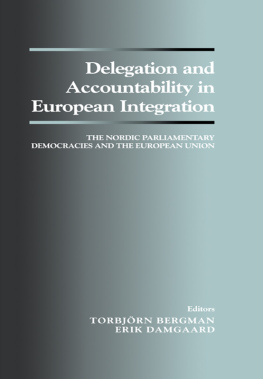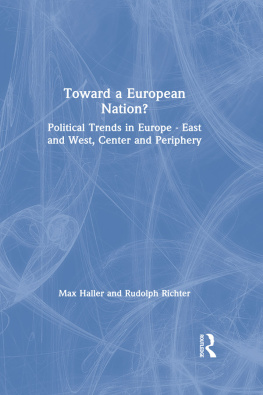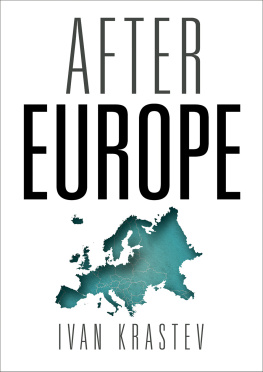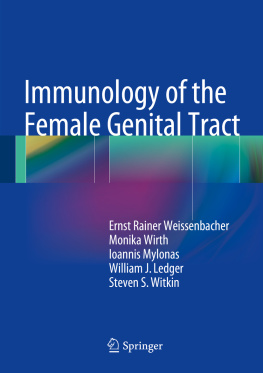Rudy Weissenbacher - The Core-Periphery Divide in the European Union : A Dependency Perspective
Here you can read online Rudy Weissenbacher - The Core-Periphery Divide in the European Union : A Dependency Perspective full text of the book (entire story) in english for free. Download pdf and epub, get meaning, cover and reviews about this ebook. year: 2022, publisher: Springer International Publishing, genre: Politics. Description of the work, (preface) as well as reviews are available. Best literature library LitArk.com created for fans of good reading and offers a wide selection of genres:
Romance novel
Science fiction
Adventure
Detective
Science
History
Home and family
Prose
Art
Politics
Computer
Non-fiction
Religion
Business
Children
Humor
Choose a favorite category and find really read worthwhile books. Enjoy immersion in the world of imagination, feel the emotions of the characters or learn something new for yourself, make an fascinating discovery.
- Book:The Core-Periphery Divide in the European Union : A Dependency Perspective
- Author:
- Publisher:Springer International Publishing
- Genre:
- Year:2022
- Rating:4 / 5
- Favourites:Add to favourites
- Your mark:
- 80
- 1
- 2
- 3
- 4
- 5
The Core-Periphery Divide in the European Union : A Dependency Perspective: summary, description and annotation
We offer to read an annotation, description, summary or preface (depends on what the author of the book "The Core-Periphery Divide in the European Union : A Dependency Perspective" wrote himself). If you haven't found the necessary information about the book — write in the comments, we will try to find it.
The Core-Periphery Divide in the European Union : A Dependency Perspective — read online for free the complete book (whole text) full work
Below is the text of the book, divided by pages. System saving the place of the last page read, allows you to conveniently read the book "The Core-Periphery Divide in the European Union : A Dependency Perspective" online for free, without having to search again every time where you left off. Put a bookmark, and you can go to the page where you finished reading at any time.
Font size:
Interval:
Bookmark:
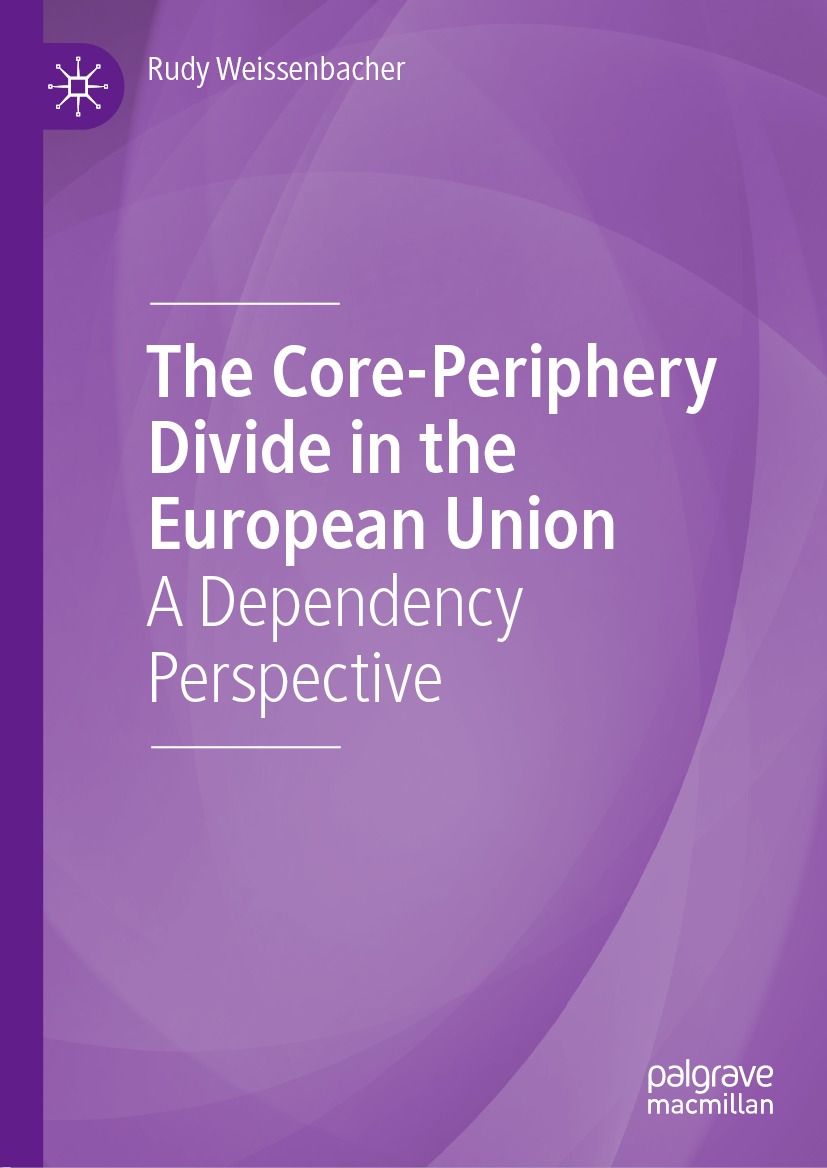

This Palgrave Macmillan imprint is published by the registered company Springer Nature Switzerland AG
The registered company address is: Gewerbestrasse 11, 6330 Cham, Switzerland
To Daphne and Primo
The idea to this book goes back to the time when the recent global economic crisis had hit Europe more than a decade ago. The crisis has not translated into a reformulation of the prevailing paradigm in economics. Rather, EU crisis management by austerity brought countries of the EU periphery to the brink of collapse. The term periphery experienced a revival but usually not in the context of an interdependence with a core. Such a holistic approach of coreperiphery relationships to the analysis of global capitalism had been typical for the Latin American dependency school. Social scientists I categorize as European dependency school (EDS) had applied aspects of the dependency paradigm to the European situation of coreperiphery relations in the 1970s and 1980s. What I found surprising was the relevance of their analyses for the Europe of today, and the informed prospects formulated for the future of European integration. A call for a special issue of the Journal of Contemporary European Studies on coreperiphery relations, an issue that would never materialize, was the first incentive to revisit the EDS in writing. The 20th Conference on Alternative Economic Policy in Europe (Euromemo Group) gave me the opportunity to draw on a few EDS authors for a paper presentation in Rome in 2014: From Dependent Industrialization to Peripheral De-Industrialization in Europe: Considerations from Development Studies. Joachim Becker and I presented a paper that attempted to bring together dependency school and regulation theory for the International Conference Research & Regulation in Paris in 2015: Changing Development Models: Dependency School Meets Regulation Theory. Also in 2015, I gave a talk at a workshop of the Arbeitskreis kritische Europaforschung in Vienna: Development Theory and SpaceQuestions of Core and Periphery in Europe (Entwicklungstheorie und Raumzu Fragen von Zentrum und Peripherie in Europa). Consequently, a first study appeared in German following discussions with Stefan Pimmer, who reloaded dependency theories together with Lukas Schmidt in a special issue for the Austrian Journal of Development Studies (Journal fr Entwicklungspolitik) in 2015: Periphere Integration und Desintegration in Europa: Zur Aktualitt der Europischen Dependenzschule. Subsequently, English versions were published in the Journal of Contemporary European Studies after all, as Peripheral Integration and Disintegration in Europe: The European Dependency School Revisited in 2017 (online) and 2018 (print).
Besides these theoretical and methodical accounts, and contributions to the history of theory, the dependency paradigm influenced empirical studies in the course leading to this book. Based on a paper presented at the 18th Conference on Alternative Economic Policy in Europe (EuroMemo Group) in Pozna, Poland, in 2012, Joachim Becker and I contributed Berlin Consensus and Disintegration: Monetary Regime and Uneven Development in the EU to a book edited by Wodzimierz Dymarski, Marica Frangakis, and Jeremy Leaman (The Deepening Crisis of the European Union: The Case for Radical Change, 2014). A paper to the conference Beyond Financial Regulation: European Industrial Policies in the Wake of the Global Financial Crisis (Barcelona, Spain, 2013) led to a contribution together with Joachim Becker and Predrag etkovi: Financialization, Dependent Export Industrialization, and Deindustrialization in Eastern Europe, in a book edited by Giovanni Cozzi, Susan Newman, Jan Toporowski (Finance and Industrial Policy: Beyond Financial Regulation in Europe, 2016).
Dependent Financialization and Uneven Development. Core and Periphery in the European Integration Process (Abhngige Finanzialisierung und ungleiche Entwicklung. Zentrum und Peripherie im europischen Integrationsprozess) was published in the Austrian Journal of Development Studies (Journal fr Entwicklungspolitik) 3 (2013) authored together with Joachim Becker and Johannes Jger. Also with these two, I contributed Uneven and Dependent Development in Europe: The Crisis and Its Implications to a book edited by Johannes Jger and Elisabeth Springler (Asymmetric Crisis in Europe and Possible Futures: Critical Political Economy and Post-Keynesian Perspectives, 2015).
Research groups of Giovanni Arrighi, an author I included in the EDS, inspired studies that were integrated in the book. An earlier version of these studies was published in the Austrian Journal of Development Studies (Journal fr Entwicklungspolitik) 3/4, 2018: A Ladder Without Upper Rungs: On the Limitations of Industrial Policies in TNC Capitalism: The Case of the European Union. Preliminary studies on alternative regional policies were also published (in German language) in a special issue of the Journal Kurswechsel 2018, 2, which I edited together with Joachim Becker and Christina Plank: Crisis as Normality: Capitalism, Regions, and Uneven Development (Die Krise als Normalitt: Kapitalismus, Regionen und ungleiche Entwicklung). Also in the Journal Kurswechsel a series of articles on the current situation of Italy was published, which would be a source for the case study of Italy in this book:
Font size:
Interval:
Bookmark:
Similar books «The Core-Periphery Divide in the European Union : A Dependency Perspective»
Look at similar books to The Core-Periphery Divide in the European Union : A Dependency Perspective. We have selected literature similar in name and meaning in the hope of providing readers with more options to find new, interesting, not yet read works.
Discussion, reviews of the book The Core-Periphery Divide in the European Union : A Dependency Perspective and just readers' own opinions. Leave your comments, write what you think about the work, its meaning or the main characters. Specify what exactly you liked and what you didn't like, and why you think so.




